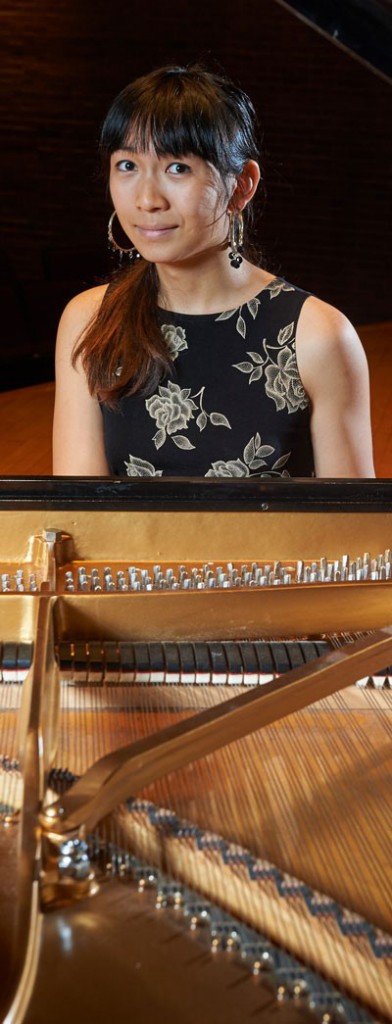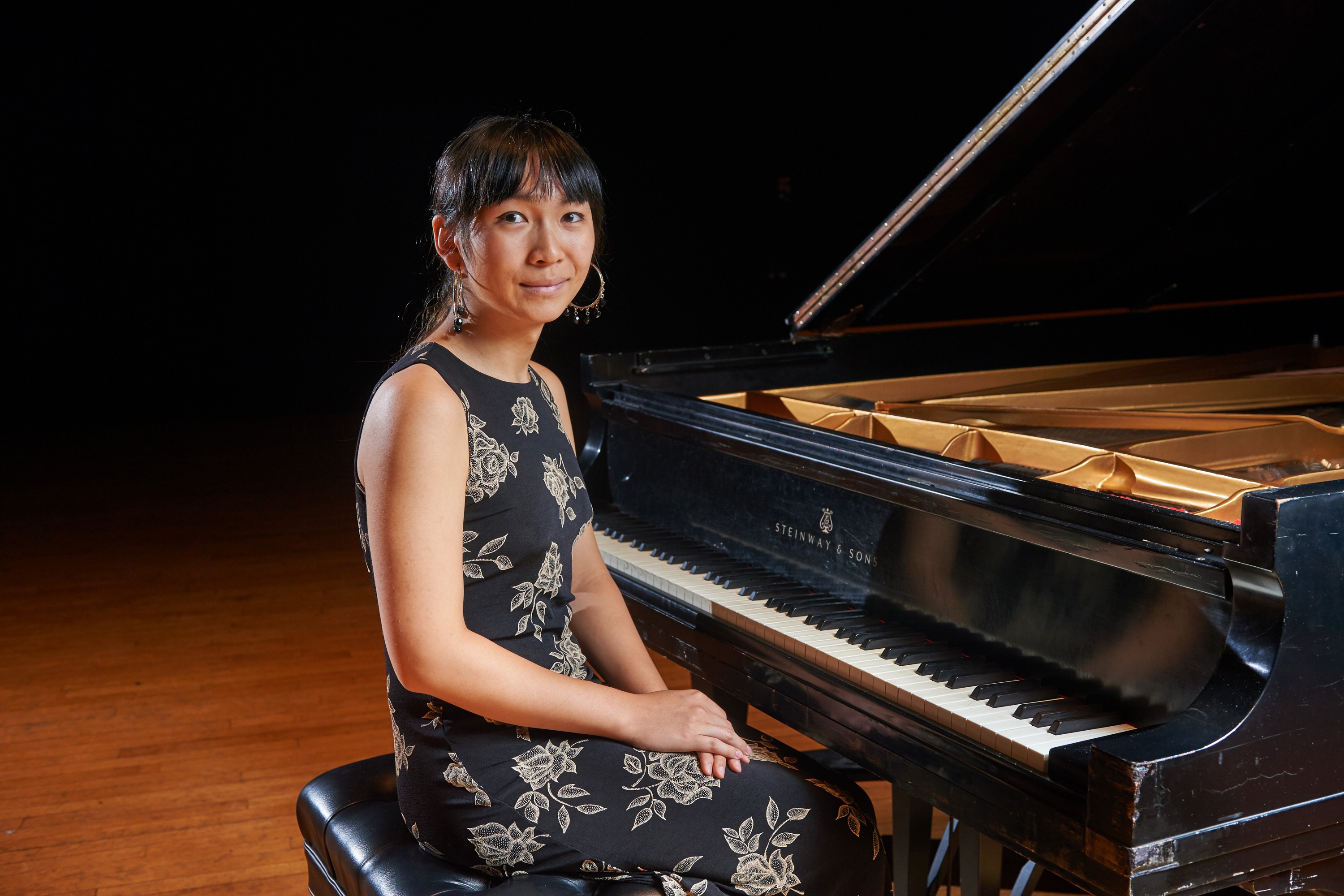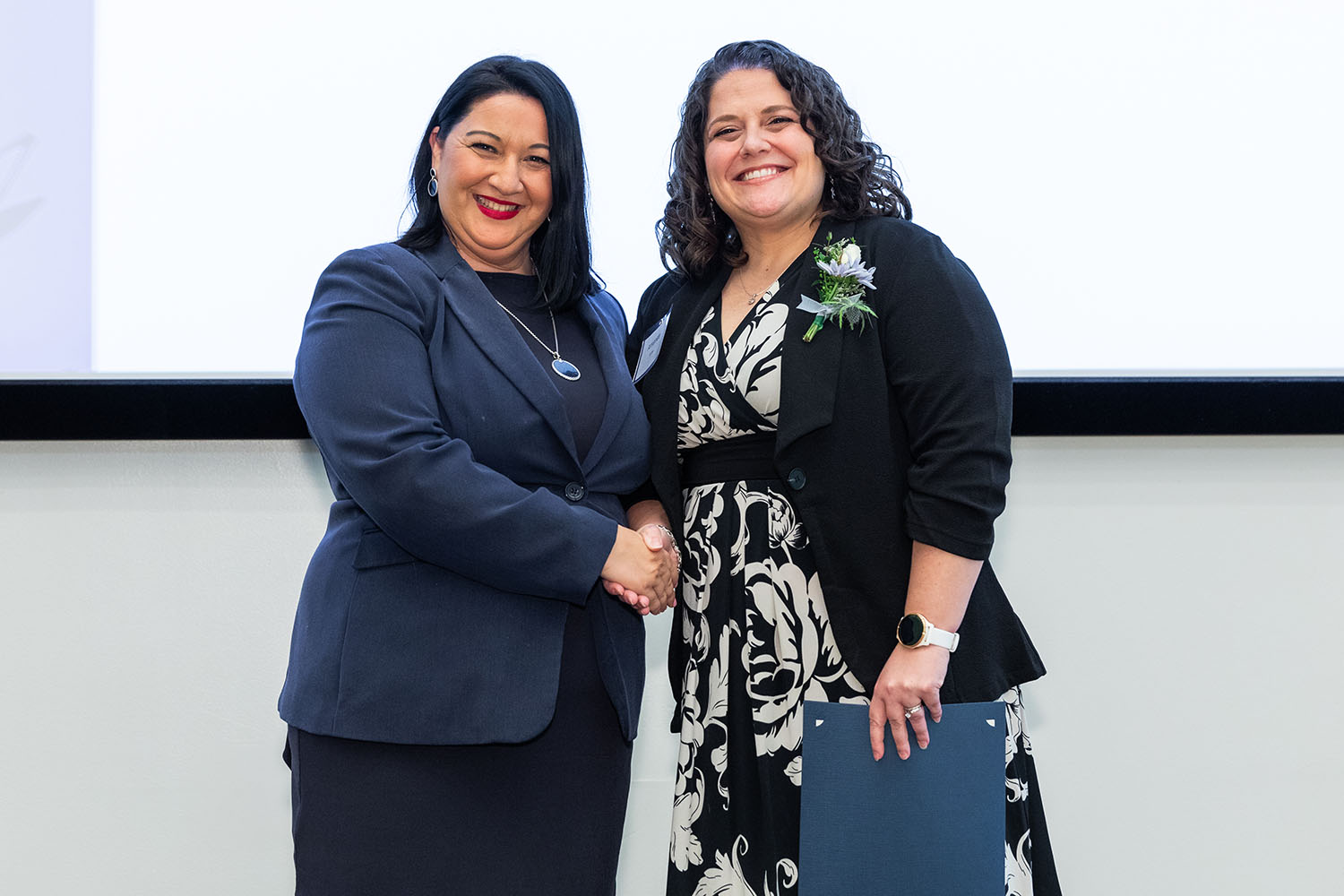To read more stories from the latest edition of UConn Magazine, go to the Magazine website.
If the name Calliope Wong is familiar to you, it’s most likely because, since not being accepted to Smith College in 2013, Wong ’16 (CLAS) has been making headlines fighting for the rights of gender-transitioning women to gain acceptance to women’s colleges. A number of colleges have changed their policies in the past few years, including this past fall, Smith. When that happened, The New York Times ran an editorial asking Smith to make Wong an honorary member of their Class of 2017 saying, “Smith didn’t give Ms. Wong an education. But the student’s courage and tenacity taught her dream school a great deal.”
While that bravery and activism is what she’s most known for, since enrolling at UConn in 2013, Wong’s been tackling a number of arenas. She’s an English major pre-med student in the Honors program who won a coveted IDEA grant to record an album of piano music. We asked Wong about each of these facets of Calliope.
 So, has Smith made you an honorary member of the 2017 class?
So, has Smith made you an honorary member of the 2017 class?
No, they’ve not responded in any way.
How did it make you feel to have The New York Times advocate for that in a piece by its Editorial Board?
It was affirming and definitely a nice feeling. Having The New York Times write about you is good for your cause.
We know why not Smith, but why UConn?
There are a lot of resources at UConn that I couldn’t find at other schools. Other schools wouldn’t allow me to be a pre-med English major, putting the hard sciences and humanities together. I get to do that here. In the morning I might be synthesizing aspirin in my Organic Chem lab and in the afternoon I’ll be dissecting lines from Beowulf.
Why pre-med?
I’d like to be an endocrinologist, a doctor who works with people with hormonal disorders. This includes transgender people, so I’d be able to help my own community as well. That’s one of the main reasons I’ve decided on this path: I want to be useful to the trans kids who’ll come in the generations after me, as a way of giving back to the community that raised me. I’m training to be a doctor to fill a need, to figure out, ‘How do we help people survive?’ I want to be a culturally competent doctor who can do just that.
And why English?
I had a high school English teacher who encouraged me to write. I was good at hiding behind words, and she saw through the vocabulary and competent writing and challenged me to write honestly. After that, my writing helped me explain who I am to myself.
Calliope is the Muse of Poetry. I picked my own name from the main character in Jeffrey Eugenides’ Middlesex. Gender identity and life in general weren’t simple for that character, and the story made a big impact on me in high school. The short version is, I picked English because I want to become someone useful, but I also want to become someone genuine.
You’ve gotten a lot of media attention for someone your age, what has been the most daunting media experience?
While I was still in high school, MSNBC rolled up into my driveway after school one day.
Unannounced?
Yes! And I had a bio test the next day.
Has the Caitlyn Jenner media jamboree affected your day-to-day life?
If you mean her presence in reality TV, it really hasn’t. She doesn’t define the typical trans narrative, and she honestly doesn’t have much in common with me. I’m very glad she’s given a voice to the community, but I hope that she realizes there have been a lot of voices in this community belonging to people who have been around the block for a lot longer. It’s sort of a risky thing to put a young person in a spotlight – and that’s sort of what she is, in trans years. Awareness of trans people itself doesn’t change things.
What do you mean?
There are so many socioeconomic issues that trans people face. Lack of medical access and insurance coverage, lack of employment protections, and so many other issues. Okay, sure, we have marriage equality, but look at the rate of trans youth expelled from homes and in poverty. Forget the ‘trans’ label for a minute – do you want this for your children? We really must make our politics about human beings and their survival.
I am many other things besides trans. — Calliope Wong
You work so hard and do so much. Do you ever stop and tell yourself, ‘Good job, Calliope?’
Things have changed. This is good, this is what we’ve been working for. Of course I sleep in sometimes like everyone else. But I do try to remind myself, ‘Now let’s keep moving.’
Speaking of pats on the back, congratulations on being one of the 26 recipients of the UConn 2014 IDEA grants. Tell us about your project.
I studied classical piano until my freshman year of high school. Then from freshman to sophomore year, life got complicated; I came out to my parents for one. I stopped piano lessons. It turned out that not having piano was a quiet and lonely feeling, so I listened to a lot of instrumental music and started making soundtracks and stuff. I learned to improvise and compose. It’s like learning to speak, you learn different ways to say things. I applied for the grant so I could create something. It’s an instrumental album with five tracks of improvisational piano recorded acoustically and five digital re-interpretations. Together, and with a booklet of liner notes, they tell my story of growing up as a Chinese-American trans woman.
What’s one thing you want non trans people to know and appreciate about trans people?
I am many other things besides trans. I’m only 20; I have a lot of room to grow. As people grow they become more things. It’s our job as people to integrate these parts and to give other people the potential to integrate, too. We have a lot to learn from one another.
What are you fighting for right now?
Education is one. I am part of TSER (Trans Student Educational Resources), which was started by trans activist Eli Erlick of California. There are a lot of issues in educational inequality – students being discriminated against or not feeling safe. That’s not okay. People need the opportunity to be educated, yet there are a lot of students who can’t feel comfortable just going to the bathroom. But I’m only one person. I’m a junior in college. At the end of a day, I’ve only had 24 hours like everyone else.
A note to leave us on?
You’re going to get a lot more than one story from a person if you stick around. We all are more capable of connecting than we imagine.
To listen to the album Wong recorded courtesy of an IDEA grant, go to s.uconn.edu/calliope.



